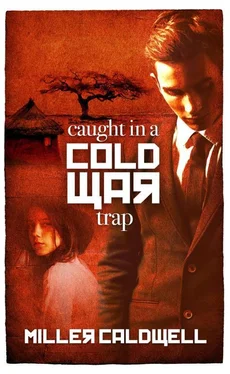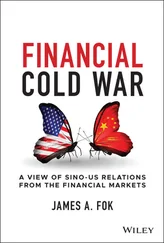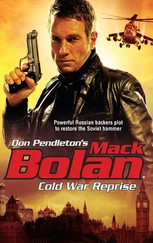‘You see that tree? You see its drooping branches?’
‘Over there, yes.’
‘They are not branches. They hover over the garbage hole, where things rot easily. It attracts the tree climbing black cobra. You don’t want to encounter him.’
‘Oh, I see, no I would not like that,’ I replied, seeing the night watchman beside the house.
‘Goodness, what’s he doing?’ I asked straining my eyes in disbelief.
‘Aruna is gathering his evening meal.’
The watchman was sitting by a Tilley lamp with a large bowl of water in front of him. As flying termites and other insects came, transfixed by the light’s attraction, he swooped one hand over them and drowned them. His wife, who was so black I did not see her at first, was sitting by a log fire. A hot flat pan received the insects, where they sizzled in some groundnut oil.
‘They eat insects?’ I asked with a rising voice.
‘Very much so. They are very tasty, crunchy and full of vitamins. I tell you, one day they will catch on in Europe. We will export insects as well as your groundnut oil.’ Dr Eric Asare laughed as his eyes rolled at the economic possibilities of his thought.
‘Come in Robert,’ shouted Peace at the steps of her front door.
‘Good evening Peace. Your husband has been giving me a very useful cultural talk.’
She welcomed me into their spacious lounge. Wooden carvings on the wall and a traditionally woven floor carpet gave it a homely atmosphere.
We talked about Eric’s time after London and how he met Peace. They had met at a gospel evening in Kumasi, thirty-eight years ago. My eyes turned to a sleeping baby in a cot in the corner of the room.
‘That’s Yaw, my grandson. His parents have travelled,’ she said without telling me where.
It was not long before I had to explain my route to Tamale. I think they were surprised it had started so long ago, and on holiday on a Scottish island, but Eric could see how I found myself entrapped in the Russian net.
‘Have you met, Mr Frempong?’ asked Peace.
‘Frempong? I don’t think so.’
‘He’s the man in charge of the shelling process.’
‘Oh, now I know who you mean. I have not spoken to him yet.’
Peace gave her husband a sly look. Was she about to say too much? That look was in her eyes. ‘He’s an old-timer, as it were.’
Her remark made no impact on my thinking.
‘He was an Nkrumah man, a communist. One who has worked in the factory since the day the Russians arrived to run it.’
My frown brought my eyebrows together tightly. I was confused. ‘But Kwame Nkrumah was the first black African leader. He was the first President of Ghana when the Gold Coast was no more. ‘That was surely an achievement of note?’
Eric smiled. ‘It was and we can’t take that away from him. But he became President not because he got on with the British but because he didn’t.’
‘What do you mean?’
‘Robert, the British ran their colonies through indirect rule. The French were more direct in their approach. They even sent black politicians to sit in parliament in Paris. But the British ruled through the chiefs. They kowtowed to the chiefs and serviced them with gifts, and so gained tribal loyalties. They sent the chief’s sons and daughters to England to school and university. But Nkrumah was a Roman Catholic, not a chief. He came from a small western village and was seen as a revolutionary upstart. He was eventually imprisoned,’ Eric looked at me with a stern face.
‘Not the best route to become President,’ I suggested.
‘Well maybe not. When he was released, he promised the market women of the country better conditions and they unanimously followed him through the elections. He won a landslide victory. The market women secured that.’
‘I see,’ I said as I finished the Tata beer I had been given.
‘The British came on their knees to congratulate him but Nkrumah was having none of it. His support was now coming from Moscow. Ever since then, Frempong has been besotted by Russia and communism.’
‘Wow what a history lesson,’ I said uncrossing my legs.
‘Come to de table boys,’ said Peace’ as her servant Seth, produced a large pot of groundnut soup and sat it in the middle of the table. On each of our plates, a mass of what looked like putty settled with a shiver. They caught me eyeing my plate.
‘That’s fufu. Boiled and pounded cassava and plantain. There are chicken pieces in the groundnut soup—I know Europeans enjoy eating this.’
‘But first, let me say grace,’ said Eric in a more sombre tone. Peace and I bowed our heads.
‘We thank you, Lord, for new friendships made, to meet in harmony and enjoy each other’s company. We give thanks for this food on the table, dear Lord. Make it serve our physical needs to sustain us in thoughtful prayer. And with this meal, put it to our use and us to thy service. This we ask in your name, Amen.’
Peace repeated the Amen and I followed a moment later, a little quieter. Then the soup was poured over the fufu. I noticed I had a spoon but neither Peace nor Eric had one. As I lifted my utensil, they dipped their right hands into the soup gathering some fufu as they did. In one quick movement, it slipped down their throats. They saw me chew the fufu and laughed.
‘Take a small amount with the soup and swallow it straight away. We do not chew it.’
It was such a filling meal that I soon felt bloated and ready to sleep. Thoughtfully, an hour later they brought the evening to an end, and when I returned to bed I dreamt of the hospitality I had received, together with the history lesson.
I also dreamt about meeting Mr Frempong. Was he an active collaborator with his Russian boss, or just a sleeper to be used when it suited the powers in Moscow—or perhaps in Accra? I had experience of just how long they could wait.
When I woke my thoughts became more realistic. Nkrumah’s day was over and the Russians had given me a job with no strings attached, surely?
By the third week at the factory I seemed to have understood every part of the oil production process. Farmers regularly brought in their peanut harvest and were paid promptly, which pleased them. The machinery was itself oiled and working well to chaff the shells, and the press brought out the oil to where sterile bottles were filled every day. Lorries stood in a line at the end of the premises to transport the bottles in cartons of 12 to the airport, a stone’s throw away. It was a slick business model.
I was sitting at my desk when I began to smell burning. I stood up and headed towards the glass louvers to locate the source of this nasal intrusion. I saw outside Mr Frempong standing over a brazier. He seemed to be in a daze. He was throwing paper by the handful into the hungry flames from a box. With a wooden stick, he turned over the pages, ensuring they completely burned.
If these were his own papers then he should not have been using up company time to burn them, but I thought they must be work-related and so I decided to investigate for myself. I made my way out of the building wondering how to challenge Mr Frempong politely.
When I turned around the corner of the office, I saw the conflagration had died down and there was no sign of anyone. The box had gone.
The stick Mr Frempong had used lay beside the brazier. I approached feeling the heat warm my face. I lifted the stick and flicked out a few half-burnt pages and stood on them. I picked up the first, which stunned me into retrieving more from the embers. In the end, I saved four pages that had artistically burnt edges. I spread them out on the ground. They were lists. I ordered them alphabetically. They were the names and addresses of most of the National Embassies in Accra, the capital. Some had lines drawn through them while others had an asterisk beside the name or the address.
Читать дальше












